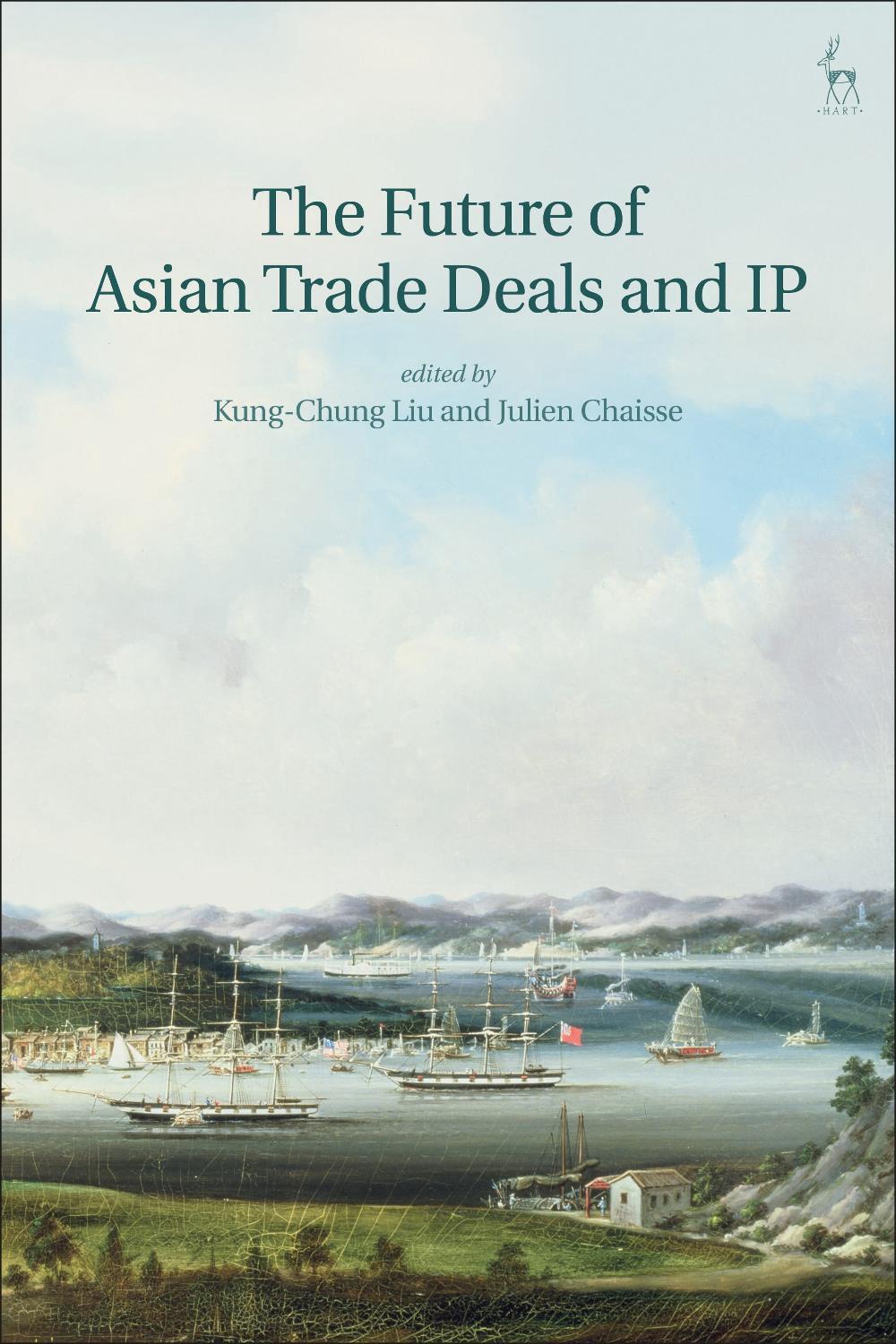
When you click on links to various merchants on this site and make a purchase, this can result in this site earning a commission. Affiliate programs and affiliations include, but are not limited to, the eBay Partner Network.
Future of Asian Trade Deals and Ip by Liu Kung Chung (English) Hardcover Book

- Item No : 388092863970
- Condition : Brand New
- Brand : No brand Info
- Seller : the_nile_uk_store
- Current Bid : US $184.87
-
* Item Description
-
The Nile on eBay

Future of Asian Trade Deals and Ip
by Liu Kung Chung
The pulling out of the Trans-Pacific Partnership (TPP) by the US marks a new era for trade deals and potentially for intellectual property (IP). The TPP has evolved to become the Comprehensive and Progressive Agreement for TPP (CPTPP) with the remaining 11 members suspending some of its provisions, over half of which are IP-related. While the TPP excludes the two Asian giants - India and the People's Republic of China (PRC) - the ongoing Regional Comprehensive Economic Partnership (RCEP) negotiations include both of them.
The first part of this edited collection sets out to re-examine some basic principles of trade negotiation, such as choosing the right representatives to negotiate and enhancing transparency as a cure to the public's distrust against trade talks; moreover, it analyses how CPTPP might impact on RCEP's IP chapter and examines the possible norm setters of Asian IP. It then focuses on the PRC's trade and IP strategy against the backdrop of the power games between the PRC, India and the US.
The second part of the book reflects on issues related to investor-state dispute settlement and its relationship with IP, such as how to re-calibrate the balance in international investment arbitration, and whether compulsory license of IP constitutes expropriation in India, the PRC and select ASEAN countries.
The third part of the book questions and strives to improve some of the proposed IP provisions of CPTPP and RCEP and to redefine some aspects of international IP norms, such as: pre-grant patent opposition and experimental use exception; patent term extension; patent linkage and data exclusivity for the pharmaceutical sector; plant variety protection; pre-established damages for copyright infringement; and the restructuring of copyright limitations in the public interest.FORMAT
HardcoverLANGUAGE
EnglishCONDITION
Brand New
Author Biography
Kung-Chung Liu is the Lee Kong Chian Professor of Law (Practice) and the Director of the Applied Research Centre for Intellectual Assets and the Law in Asia (ARCIALA) at Singapore Management University.
Julien Chaisse is Professor of Law at the City University of Hong Kong and Advisory Board Member of the Asian Academy of International Law (AAIL).Table of Contents
1. Introduction: The Intersection between Intellectual Property Rights and Free Trade Agreements
Kung-Chung Liu and Julien Chaisse
PART I
FROM TPP/CPTPP TO RCEP
2. Selecting the Right Representatives to Participate in Trade Negotiations: A New Model of Multi-Stakeholder Involvement for Future Plurilateral Free Trade Agreement Negotiations
Benjamin Tham
3. Trade Strategies and Power Games between China, the US and India
Liyu Han and Jiaxun Sun
4. The Future of China's Trade Pact and Intellectual Property Rights
Han-Wei Liu and Si-Wei Lu
5. The RCEP Negotiations and Asian Intellectual Property Norm Setters
Peter K. Yu
PART II
INVESTOR-STATE ARBITRATION AND INTELLECTUAL PROPERTY
6. Recalibrating the Balance in International Investment Agreements
Tomoko Ishikawa
7. Issuance of Compulsory Patent Licences and Expropriation in Asian BITs and FTA Investment Chapters: A Study of India, China, Malaysia and Thailand
Prabhash Ranjan
PART III
IMPROVING THE IP PROVISIONS OF CPTPP/RCEP AND REDEFINING GLOBAL IP NORMS
8. Will RCEP Redefine Norms Related to Pre-grant Opposition and Experimental Use Exceptions in International Patent Law?
Prashant Reddy Thikkavarapu
9. Patent Term Extension in the Pharmaceutical Sector: An Asian Comparative Perspective
Yaojin Peng
10. Mitigating the Impacts of Patent Linkage on Access to Medicine: Some Asian Experiences and Suggestions
Su-Hua Lee
11. Intellectual Property in Plant Material and Free Trade Agreements in Asia
Christoph Antons
12. Pre-established Damages for Copyright Infringement and Trademark Counterfeiting: Suggestions for CPTPP/RCEP Based on Some Asian Experiences
Kung-Chung Liu and Haoran Zhang
13. Liberalizing Use of the Three-Step Test and Copyright Limitations in the Public Interest
Haochen SunPromotional "Headline"
This book is available as open access through the Bloomsbury Open Access programme and is available on In this book, prominent Asia-focused trade and IP law academics re-examine the interrelation and trade-off between CPTPP and RCEP, the two most important trade deals in the making that will have great impact on Asia and its IP regimes. The first part re-examines some basic principles of trade negotiation; the second part reflects investor state dispute settlement and its relationship with IP. The third part questions how to improve some of the proposed IP provisions and aspects of international IP norms.
Details
ISBN1509922776Author Liu Kung ChungISBN-10 1509922776ISBN-13 9781509922772Format HardcoverPublisher Bloomsbury Publishing PlcImprint Hart PublishingPlace of Publication OxfordCountry of Publication United KingdomEdited by Julien ChaisseDEWEY 346.5048Pages 320Year 2019Publication Date 2019-11-28Language EnglishUK Release Date 2019-11-28NZ Release Date 2019-11-28AU Release Date 2019-11-27


-
- The Lost Super Foods
- $ 37.00
- The Self-Sufficient Backyard
- $ 37.00
- A Navy Seals BUG IN GUIDE
- $ 39.00
- Childrens Books Phonics Lot 60
- $ 34.99
















